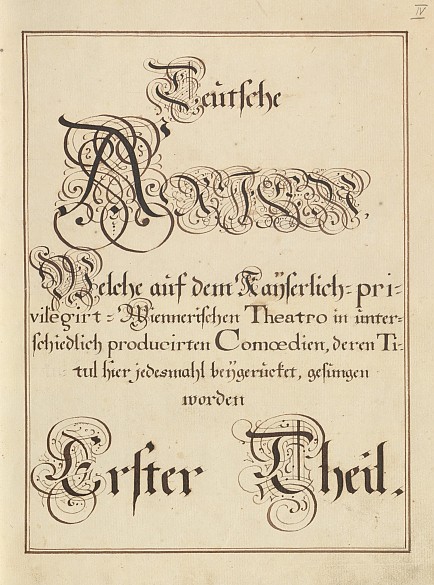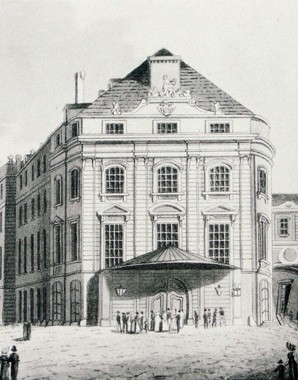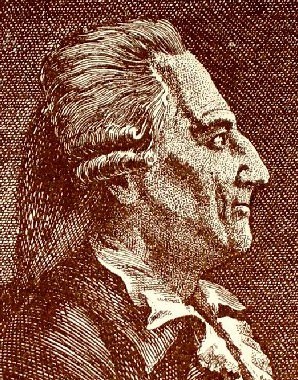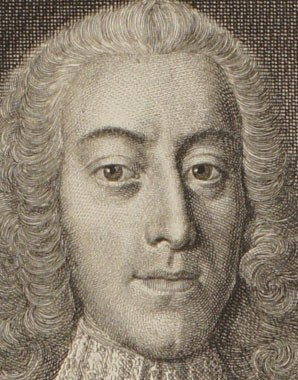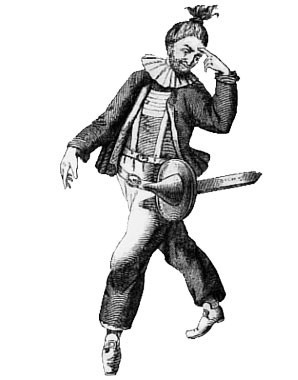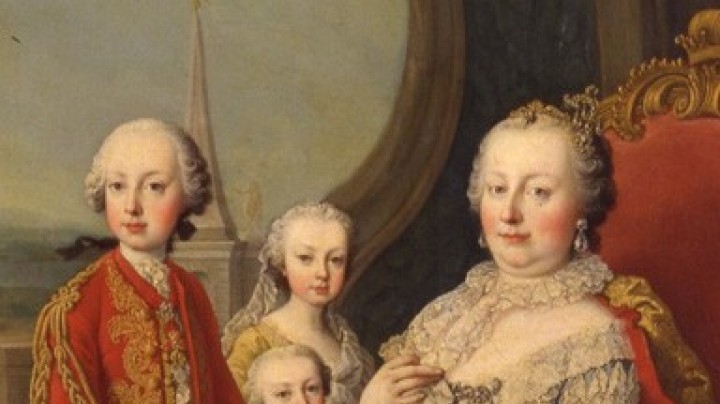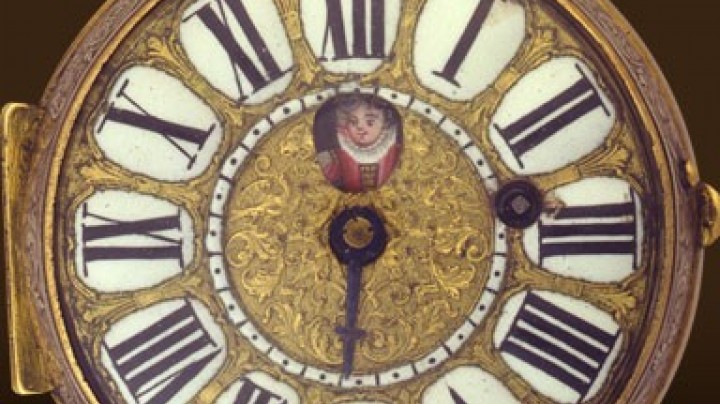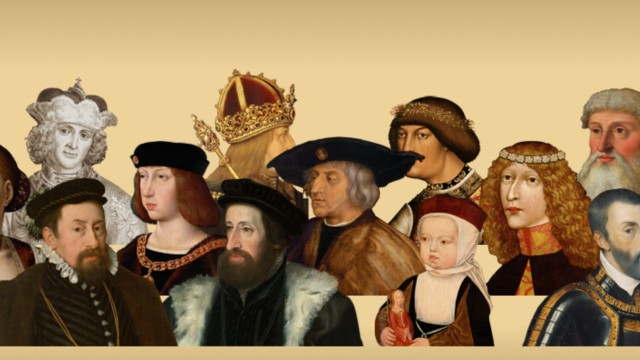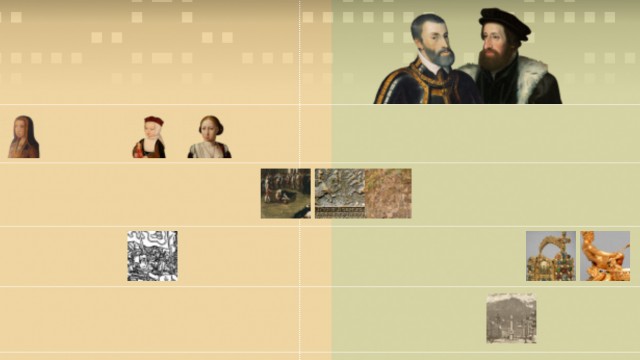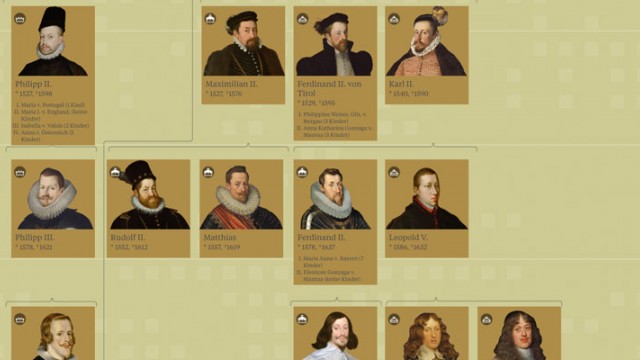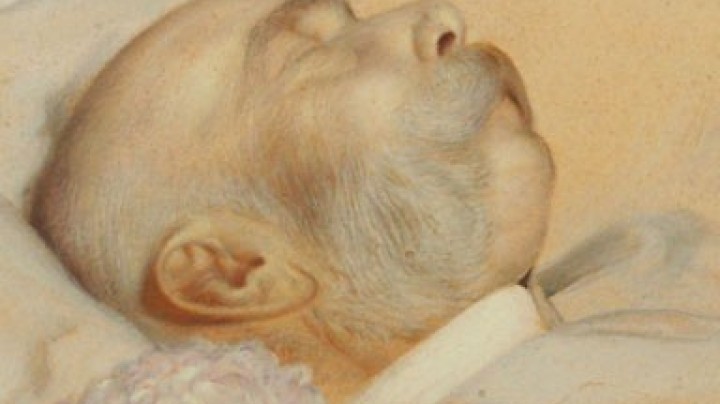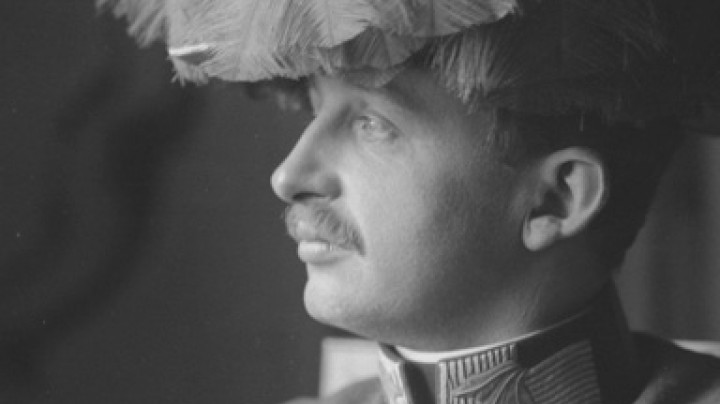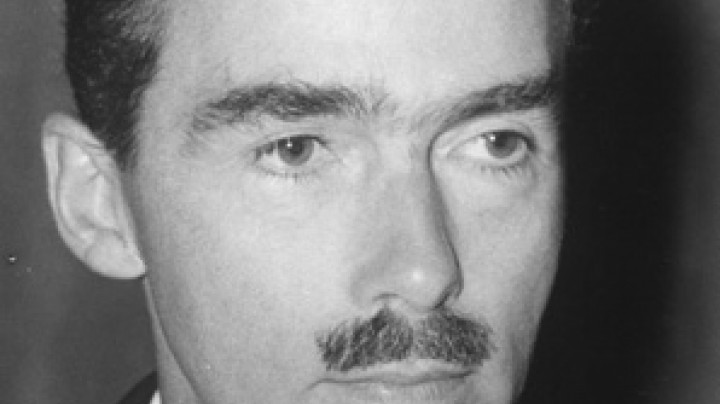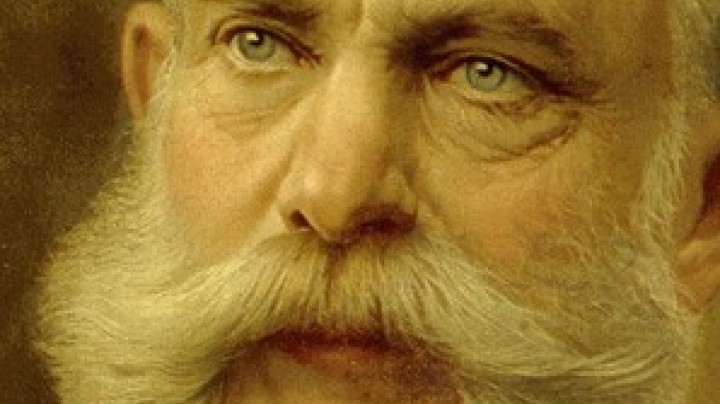Noble entertainment, loss-making ventures
Reformed opera, ‘Hanswurst’ comedies and prominent audiences – despite good attendance figures the Court theatres and their lessees operated at a loss.
Initially the ‘Royal Theatre beside the Burg’, which had opened in 1748, had a mixed repertoire, like the Kärntnertortheater: alongside Italian operas, French dramas and ballet, improvised German-language comedies began to be included, something that had never before been performed at Court. Both Franz Stephan of Lorraine and his son Joseph II were fond of the ‘Hanswurst comedies’ and contributed to their social acceptability.
In 1752 the repertoire was temporarily separated, with German-language performances being given only at the Kärntnertortheater while French, Spanish and Italian plays remained the preserve of the Burgtheater. Eventually the two theatres were amalgamated as Court stages. The German-speaking companies of actors performed alternately at both theatres.
The collection entitled Teutsche Arien containing songs and numbers that were incorporated into German-language comedies provides a cross-section through the history of German theatre and shows what amused audiences from the highest to the humblest social circles.
However, because of the high costs caused in particular by lavish opera productions, the Burgtheater and Kärntnertortheater ran at a loss. Initially they were maintained by the court but later the lessees had to bear the financial risk alone. All the lessees had to endure heavy losses and some were even ruined. One of them, the bon vivant and adventurer Giuseppe d'Afflisio, who knew Casanova, even ended up as a galley slave.
Despite everything, the most important musical events took place at the Burgtheater, and the reputation of the national theatre extended far beyond the borders of the Monarchy. From 1754 the composer Christoph Willibald Gluck (1714–1787) was Kapellmeister at the Burgtheater. He sought to reform opera by giving equal value to music and text, believing that the libretto should express the underlying idea which then determines its musical expression. In 1762 this theatre saw the premiere of his first reformed opera, Orpheus and Eurydice, in which Gluck strove for simplicity and naturalness in keeping with the ideas of the Enlightenment. His opera Alceste, first performed in 1767, was felt to be too ‘pathétique and lugubre’ for court tastes, as Khevenhüller-Metsch reported.
